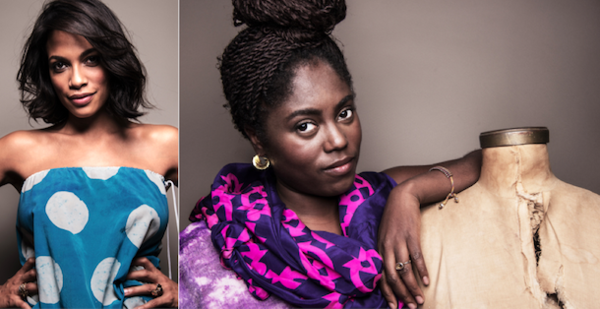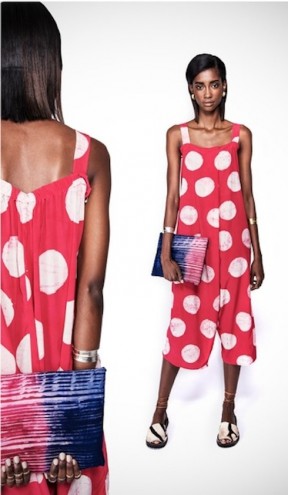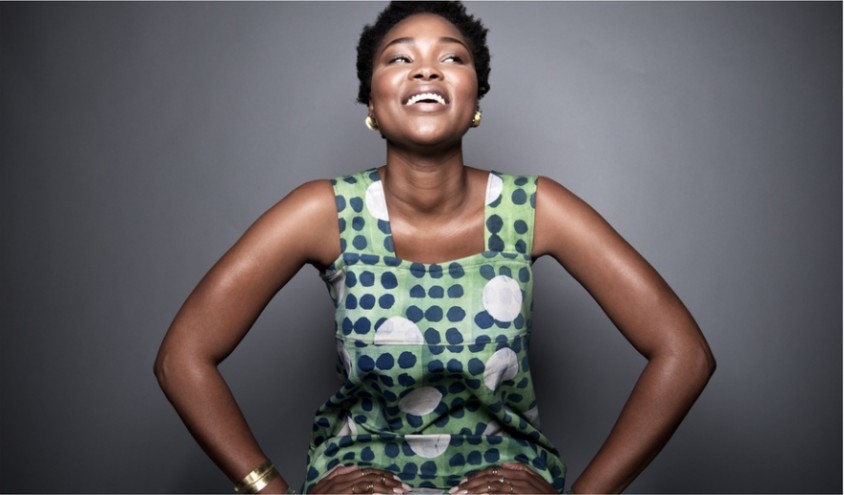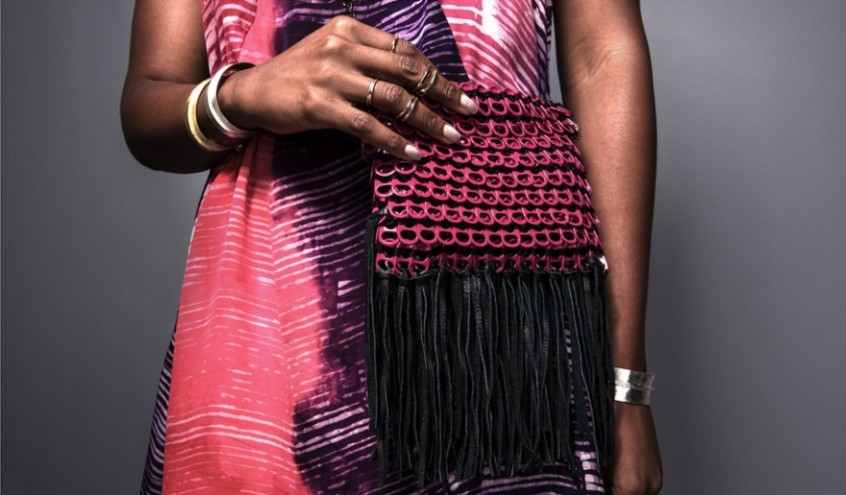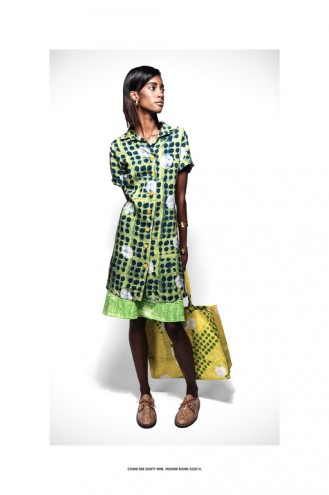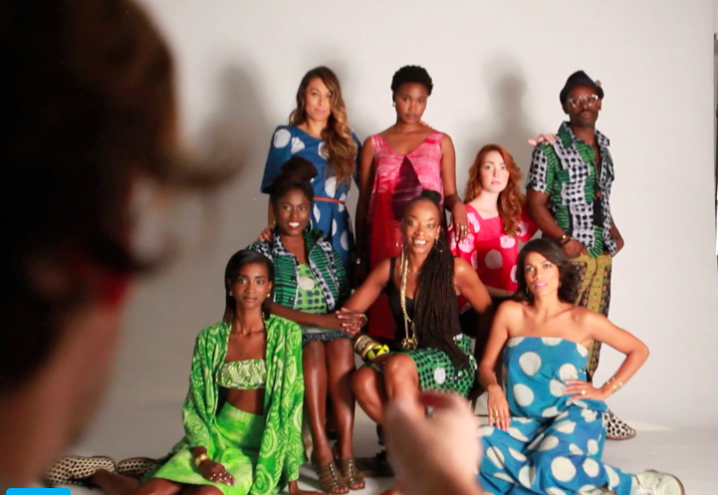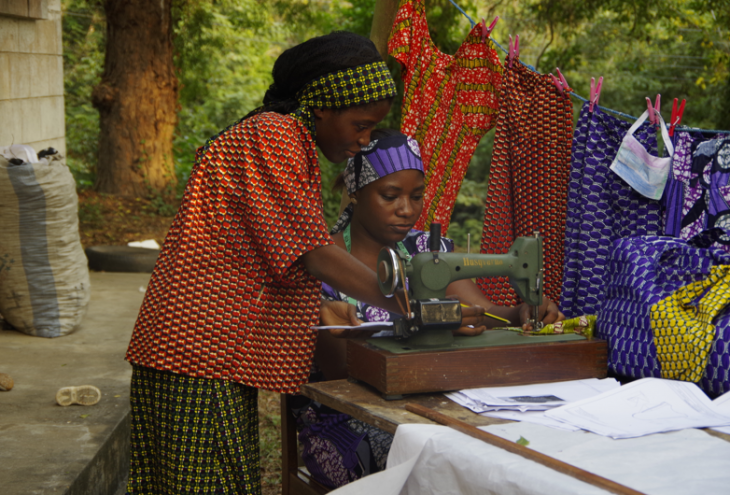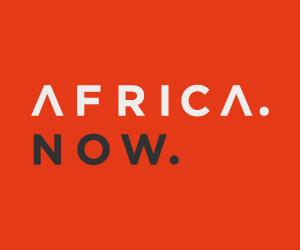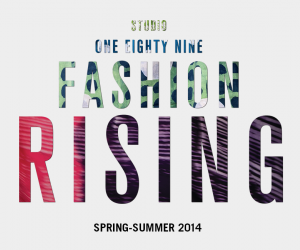Part of the Project
From the Series
Fashion hearts are aflutter with love for African pattern right now, but one design label in particular is going further, helping to preserve traditional artisanship and set up ethical production on the continent.
Studio One Eighty Nine is catching the world’s attention with the striking designs of its Fashion Rising collection, produced in a workshop in Ghana and sold on its newly launched online shop.
Its Spring Summer 2014 collection was featured in the Africa Is Now exhibition at Design Indaba Expo 2014. Since then, Vogue Italy has come knocking, and so has Us Weekly, Style.com and The Queen Latifah Show.
The two dynamic women at its core are New Yorkers Abrima Erwiah and actress Rosario Dawson. Friends since they were teenagers, they were inspired to start their social enterprise after attending the opening of the City of Joy, a healing centre for brutalised women in Bukavu in the DRC in February 2011.
The centre is a project of V-Day, writer Eve Ensler’s global activist movement to end violence against women. “V-Day’s One Billion Rising campaign put out a global call to action in 2012 saying that according to UN statistics, one in three women globally will be the victim of rape or sexual violence in their lifetime – which works out to about one billion women worldwide,” explains Erwiah.
The experience galvanised Dawson and Erwiah.
We have come across many women in our journey that have ‘risen’ because of creativity and fashion so we called it ‘fashion rising’, Erwiah says.
Erwiah, who is of Ghanaian and Ivoirian heritage, has more than 15 years of fashion and luxury experience, most recently in global marketing and communications for Bottega Veneta. She relocated to Ghana to oversee production for Studio One Eighty Nine.
She and Dawson design each collection in collaboration with local artisans. “We use many traditional techniques and infuse them with innovation in order to develop products that preserve the local heritage and traditions but that are at the same time modern and contemporary,” she says.
Their Spring Summer 2014 collection drew heavily on hand-painted patterns, batik and screenprinting. The label also frequently incorporates artisanal techniques such as basket weaving (seen, for example, in bags made from woven palm leaves), kente weaving, wood carving and ‘bogolanfini’ (Malian textiles usually referred to as mud cloth).
Their third collection (Spring Summer 2015), which they are currently working on, will feature indigo as an integral part of their storytelling. They have partnered with the United Nations Ethical Fashion Initiative to show the collection in Milan in September.
We have increased and expanded our work with local artisans to include additional traditional crafts and product categories, Erwiah says.
The collection will also introduce bogolan bags, jewellery inspired by traditional Adinkra symbols and pieces made of carved wood and beadwork.
“The challenge we always have is in sourcing materials and consistency in quality,” she says about working in a country without an established fashion manufacturing industry. “We try to find creative ways to address these challenges and come up with solutions that improve the standard of our product and introduce new ideas to the local market.”
Quality fabrics are high on their list of priorities – cotton twill, crepe de chine, silk georgette, Italian wool and vegan leather, the latter being a material that in Ghana is traditionally used in furniture rather than garments.
Their design identity mixes high and low – handbags made from recycled can pulls, aprons and pillows from rice bags, beads from recycled glass bottles.
The pair are also working hard to make a difference on the ground in Ghana. They have just helped set up an ethical factory there and have trained 20 tailors to produce clothing for various designers, including themselves. They are helping local brands to prepare for export and have recently tripled the size of the team in their own workshop.
Fuel shortages, rolling power outages, the raining season and depreciation of the Ghana cedi are all issues to contend with, Erwiah admits. “But on the upside, we work with so many amazing and talented individuals and artisans. Our aim is to create as much value as possible in Africa and to come up with innovative solutions to some of these challenges and continue to move forward working here.”
Browse the latest Fashion Rising collection here.

